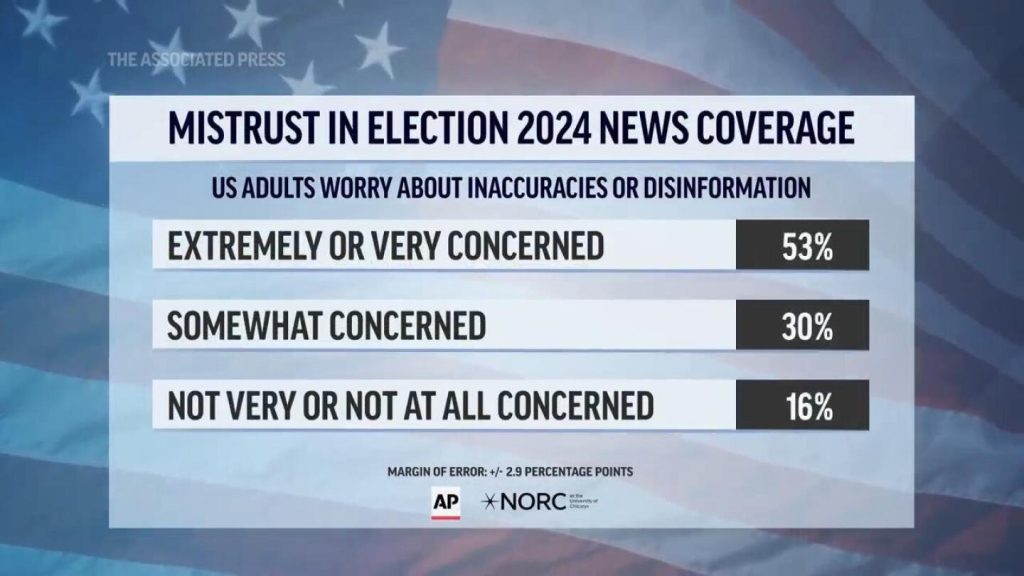A recent poll conducted in the United States revealed that approximately half of Americans are extremely or very concerned about the possibility of news organizations reporting inaccuracies or misinformation during the upcoming election. Additionally, 42% of respondents expressed worry that news outlets may use generative artificial intelligence to create stories. These concerns highlight the importance of media literacy and the need for trustworthy sources of information during this crucial time.
The prevalence of misinformation and fake news has become a growing concern in recent years, particularly in the lead up to major events such as elections. With the rise of social media and digital platforms, false information can spread rapidly and have a significant impact on public opinion. It is essential for news organizations to uphold high ethical standards and fact-checking procedures to ensure the dissemination of accurate and reliable information to the public.
Generative artificial intelligence, a technology that can create human-like text based on input data, presents a new challenge for news organizations and consumers alike. While AI can be a powerful tool for generating content quickly, there is also the risk of it being used to manipulate information and create fake news. This underscores the importance of critical thinking and digital literacy skills in evaluating the credibility of sources and content online.
The poll results reflect a growing sense of distrust and skepticism towards traditional news outlets, which have long been regarded as reliable sources of information. In an era of increasing polarization and misinformation, it is crucial for journalists and media organizations to prioritize transparency, accuracy, and accountability in their reporting. By maintaining high ethical standards and editorial integrity, news outlets can rebuild trust with their audiences and combat the spread of fake news.
As the 2022 election approaches, it is imperative for voters to be vigilant and discerning in their consumption of news and information. By fact-checking stories, verifying sources, and cross-referencing information from different outlets, individuals can avoid falling prey to misinformation and manipulation. Additionally, engaging in open dialogue and constructive debate with others can help foster a more informed and critical public discourse.
Ultimately, the poll results serve as a reminder of the vital role that the media plays in informing and shaping public opinion. As the guardians of democracy, journalists have a responsibility to uphold the principles of accuracy, impartiality, and truth-telling. By working in the service of the public good and holding power to account, news organizations can help build a more informed and engaged citizenry, essential for a healthy and functioning democracy.















